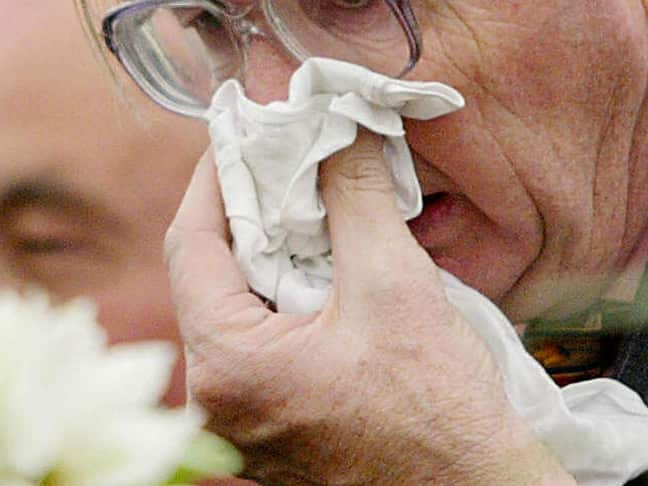Millions of people around the world could stave off infections such as colds or flu every year by taking Vitamin D supplements.
A new study has found that taking the supplements protects against acute respiratory infections.
Vitamin D supplements has been a hot topic in medical circles in recent years with some experts arguing that their usefulness remains uncertain.
But health officials say that vitamin D is vital for bone and muscle health.
RELATED READING

Research offers autism hope through vitamin D link
Last year, Public Health England said that people were generally not getting the recommended 10 micrograms of vitamin D a day from sunlight in winter.
The latest new study, published in The BMJ, suggests that taking vitamin D - also known as the sunshine vitamin - may have benefits beyond bone and muscle health and protects against acute respiratory infections.
Results of the study fit with the observation that colds and flu are most common during winter and spring, when levels of vitamin D are at their lowest.
Respiratory tract infections are any infection of the sinuses, throat, airways or lungs and can last up to 30 days.
The common cold is the most widespread respiratory tract infection; others include ear infections, bronchitis and pneumonia. The new research, led by academics from Queen Mary University of London, analysed data from almost 11,000 participants aged up to 95 who took part in 25 clinical trials conducted in 14 countries.
The new research, led by academics from Queen Mary University of London, analysed data from almost 11,000 participants aged up to 95 who took part in 25 clinical trials conducted in 14 countries.

(File photo: Getty images) Source: Getty Images
The study concluded that supplements can help prevent acute respiratory tract infections, particularly among those who are deficient in vitamin D.
After adjusting for other potentially influential factors, the researchers found that vitamin D supplementation cut the proportion of participants experiencing at least one acute respiratory tract infection by 12 per cent.
Lead researcher Professor Adrian Martineau said: "The bottom line is that the protective effects of vitamin D supplementation are strongest in those who have the lowest vitamin D levels and when supplementation is given daily or weekly rather than in more widely spaced doses".
RELATED READING

Lack of vitamin D linked to asthma risk






